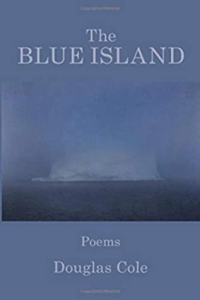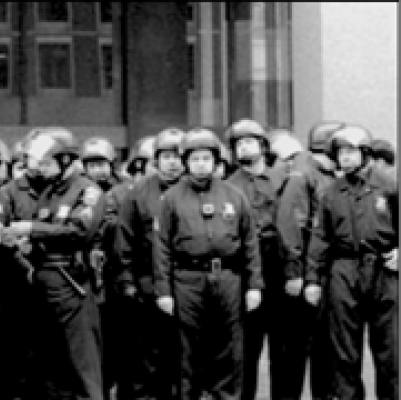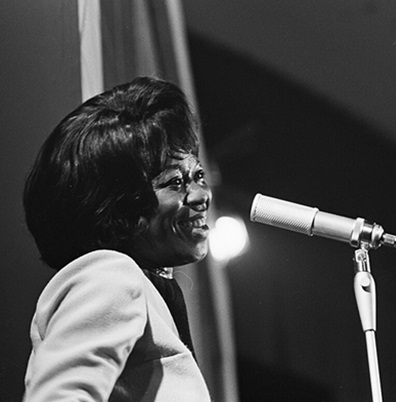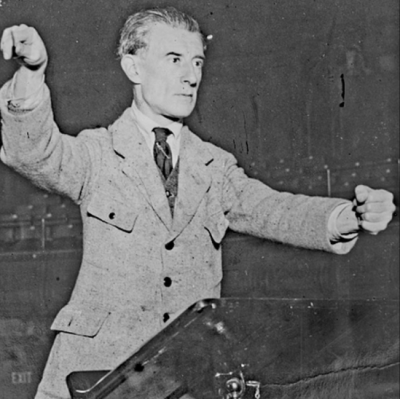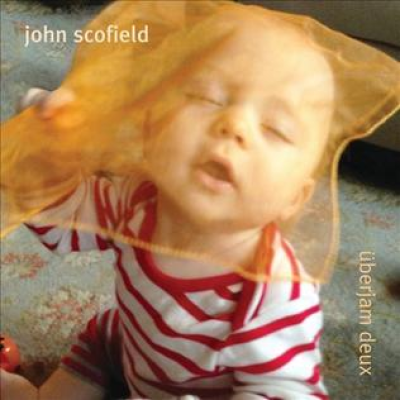.
.
Trading Fours with Douglas Cole is an occasional series of the writer’s poetic interpretations of jazz recordings and film
.
.
___
.
.
.
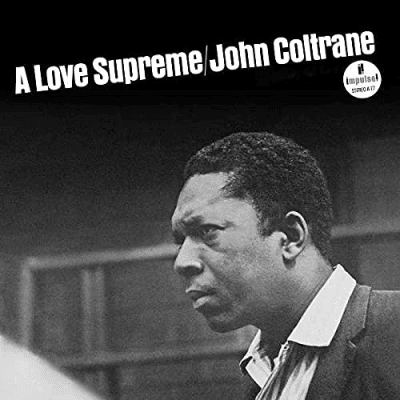
.
“Fire From Heaven” arises from the poet listening to John Coltrane’s 1964 album A Love Supreme [Impulse!]
.
.
___
.
.
Fire from Heaven
“Words, sounds, speech, men, memory, thoughts
fears and emotions—time—all related…all
made from one” —John Coltrane
.
Acknowledgment
“You have to learn how to articulate
a different kind of language,” Carlos says,
“a language of light—that’s what Coltrane is:
sheets of sound, language of light.
I swear to you, if you play this music
in anybody’s house, every hotel room in the world,
you will disinfect and you will dismiss unwanted spirits.
Whatever they did the night before will be erased
when you play A Love Supreme—
that’s how powerful that frequency is.”
The four-note core of A Love Supreme
is reminiscent of the two-note nucleus
at the center of Miles Davis’s “So What.”
Note-count matches syllable-count, opening a door,
and surprise! Your childhood face is hit by light,
as if you were born dead of winter,
and now this first solid step into the world—
the sun for the first time like another door,
far away, from which we come.
Testing, finding, rising, thinking still in the mix
but shedding as we dive into lower registers—
a grumble, a chant-like root tremble,
the refrain—it’s the idea over and over in new
variations to find, to find and explore what ways
the intonation cracks the top of the head,
a moaning and then high holy keening,
and then calling in the human voices…
McCoy exploring around those code notes
like a map maker, an astronomer
cataloging his way through a nebula,
and if you listen you will hear
his chordal question—how high?
How far? hanging on the air and moving
like sea beams in the darkness.
Drift in time, the baseline waivers
matching rhythm for rhythm,
tone for tone, the deep vibration of space.
.
Resolution
Because some days are a battle for the soul:
you wake up and feel it out there,
like a Santa Ana, a scirocco on the way,
loaded up with all that stuff you thought
you threw away, a wish
that maybe we had all evolved out of.
The modal urge—a mantra—
like a killer whale coming up for air
then sliding back into pure depth,
smoke coming in, swallowing distance,
the horizon turns to look through you
and the theater at the back of your eyes,
the siren coming round and round again,
the low light shadows of the alleyways
and the leaning, weeping willow trees
reaching down to the beach,
mothers with babies who see only sky.
McCoy pounds out the waves:
imagine a man on shore, his hands out,
eyes closed, and where he moves
the water moves the same way,
to the bottom of the ocean, the ground
beneath your feet, the earth opening up
as if the darkness opened its fist
and a great fiery bolt shoots out,
branches, shudders, falls and rises again.
.
Pursuance
“When I discovered a love supreme,”
Carlos says, “that day— it’s like discovering
being a multidimensional being.”
Drum drum drum go go go—
Old woman and her adult daughter
on a childhood blanket in the sand—
she’s digging a hole to China,
the same endeavor that’s engaged her
since she was three, the search
going down and up at the same time,
looking for the heart of the mystery.
Coltrane blasts against all limitations—
time and matter—he’s going high, higher,
pure expansion, opening out so that
what we sometimes hear is
the explosion of his liftoff
punching through the sound barrier.
Two military ships outside Bremerton Bay.
The world was smaller, once, the stars much closer.
One day everything will be too far off to see
or reach: we will never fly so fast, so far.
What else is there but to turn inward
to the God you need, if you need,
or a way out where all points connect
from the center to the edge.
And suddenly, you know it—
it’s not a catastrophe or a tragedy
but the whole motion—well-explained in that
documentary on Infinity: mathematically,
sound that you are, doing this in an infinite
number of ways an infinite number of times—
that’s the wall of sound, that’s what’s coded
into the high shriek and the meditation drone,
the heart beating on the door of perception,
opening, opening in and in as Garrison
climbs the invisible stairs ascending
through cloud canopy of atmosphere,
back into the one-tonal song at the heart,
the wavelength that brough us here.
Because we’re all sending up smoke signals,
little combination prayers burning up—
time was, time is—fire— that’s pretty much it:
burn for what the fire shows you,
a note to hold it together.
.
Psalm
The lament, harkening back to “Alabama,”
“Naima,” the world, back in the world,
the minor chant, a kind of kaddish for sorrow,
all sorrow, the sorrow we can’t seem to escape,
and he is saying lay it to rest, lay
your heavy heart down, departing body,
and all that lies behind the things of the mind,
going, slowing, going like the sound of gamelan
into the forest, the incense hovering over the path
and out over the water and up through sky.
And then back to beginning,
beginning like a heartbeat, short steps
exploring— where are we? Stutter staggering,
Look! Look! the way the wind moves
golden threads rolling through the field,
Look! Listen to the resolution.
“Let us go into the House of the Lord:”
Carlos says, “Pharaoh Sanders, A Love Supreme…
I play to please God and uplift people.”
They are gathering in garage as temple,
storefront church, testing ears and knowledge,
the mind that aligns as the music gathers,
an orchestra coming into tune and attention,
beginning with the drum’s primal rhythm—
we all begin the journey speaking in tongues,
the fire coming from heaven, “the passion and rage
and anger and rebellion and love,” Miles says,
the scream of ecstasy, the heart exploding,
“the traffic and failure that does shape this place,”
when Baraka was on his way to the music, the listener,
the player who hears “the chaos rising out of the void,”
as Sonny’s brother sees, and is only free if we listen,
souls in proximity, music rising into something else.
.
.
_____
.
.
.
Listen to the poet read “Fire From Heaven”
.
.
.
Listen to “Acknowledgement,” from A Love Supreme [Universal Music Group].
.
.
Listen to “Resolution” from A Love Supreme [Universal Music Group].
.
.
Listen to “Pursuance” from A Love Supreme [Universal Music Group].
.
.
Listen to “Psalm” from A Love Supreme [Universal Music Group].
.
.
___
.
.
Click here to read “The Canonization of Saint John Coltrane” by M.H. Miller (New York Times)
.
Click here to listen Light, Spirit, and Soul, by Carlos Santana
.
Click here to listen to the 1973 recording of Carlos Santana and John McLaughlin playing A Love Supreme
.
Click here to watch a 2003 film of Branford Marsalis playing A Love Supreme
.
.
___
.
.
photo by Jenn Merritt

.
Douglas Cole has published six collections of poetry and The White Field, winner of the American Fiction Award. His work has appeared in several anthologies as well as journals such as The Chicago Quarterly Review, Poetry International, The Galway Review, Bitter Oleander, Chiron, Louisiana Literature, Slipstream, as well Spanish translations of work (translated by Maria Del Castillo Sucerquia) in La Cabra Montes. He is a regular contributor to Mythaixs, an online journal, where in addition to his fiction and essays, his interviews with notable writers, artists and musicians such as Daniel Wallace (Big Fish), Darcy Steinke (Suicide Blond, Flash Count Diary) and Tim Reynolds (T3 and The Dave Matthews Band) have been popular contributions. He has been nominated twice for a Pushcart and Best of the Net and received the Leslie Hunt Memorial Prize in Poetry. He lives and teaches in Seattle, Washington. Click here to visit his website..
.
.
The poet’s collection, The Blue Island
.
.
___
.
.
Click here to learn how to submit your poetry
Click here to subscribe to the Jerry Jazz Musician newsletter
.
.
.




